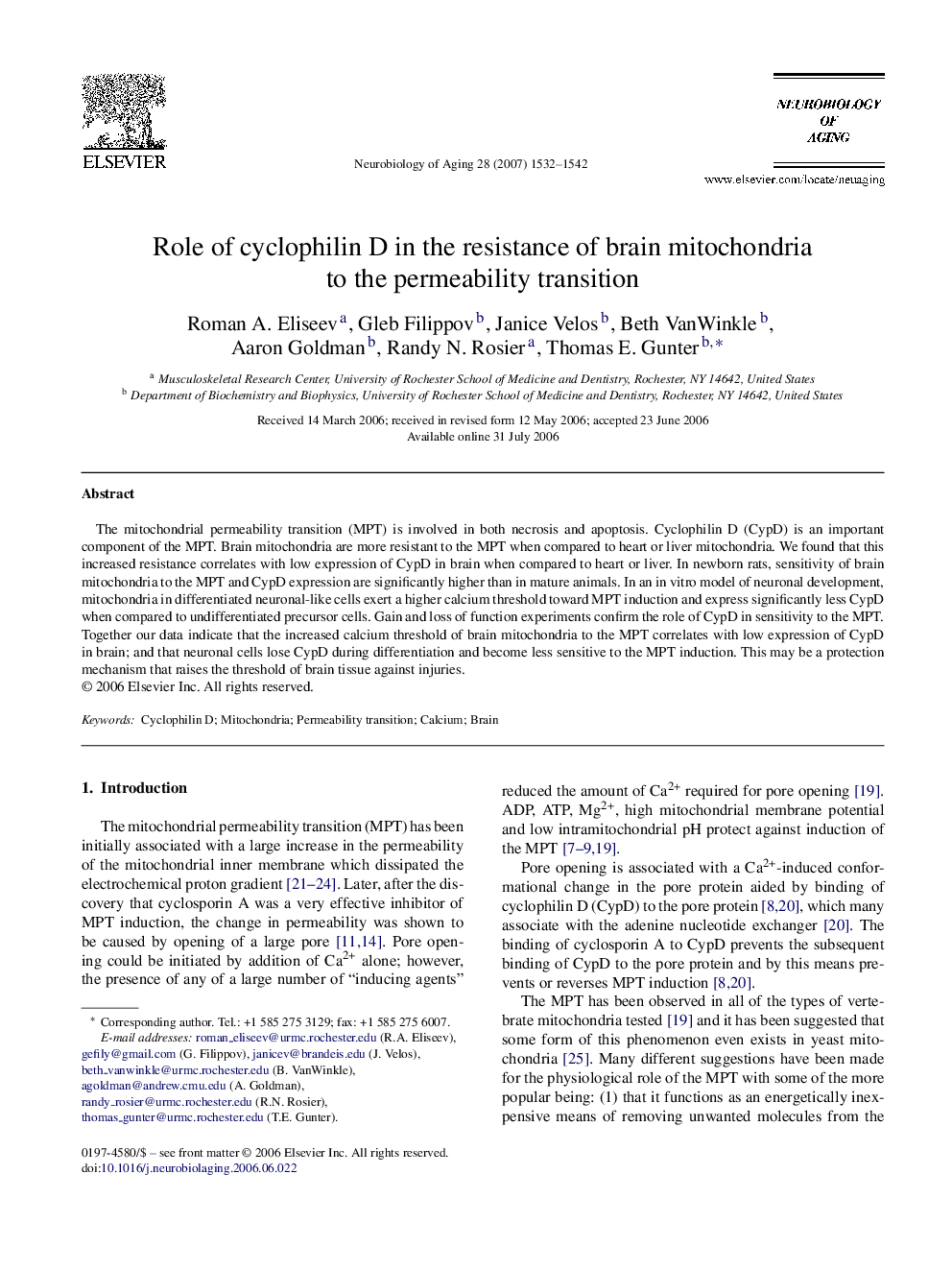| Article ID | Journal | Published Year | Pages | File Type |
|---|---|---|---|---|
| 330414 | Neurobiology of Aging | 2007 | 11 Pages |
The mitochondrial permeability transition (MPT) is involved in both necrosis and apoptosis. Cyclophilin D (CypD) is an important component of the MPT. Brain mitochondria are more resistant to the MPT when compared to heart or liver mitochondria. We found that this increased resistance correlates with low expression of CypD in brain when compared to heart or liver. In newborn rats, sensitivity of brain mitochondria to the MPT and CypD expression are significantly higher than in mature animals. In an in vitro model of neuronal development, mitochondria in differentiated neuronal-like cells exert a higher calcium threshold toward MPT induction and express significantly less CypD when compared to undifferentiated precursor cells. Gain and loss of function experiments confirm the role of CypD in sensitivity to the MPT. Together our data indicate that the increased calcium threshold of brain mitochondria to the MPT correlates with low expression of CypD in brain; and that neuronal cells lose CypD during differentiation and become less sensitive to the MPT induction. This may be a protection mechanism that raises the threshold of brain tissue against injuries.
